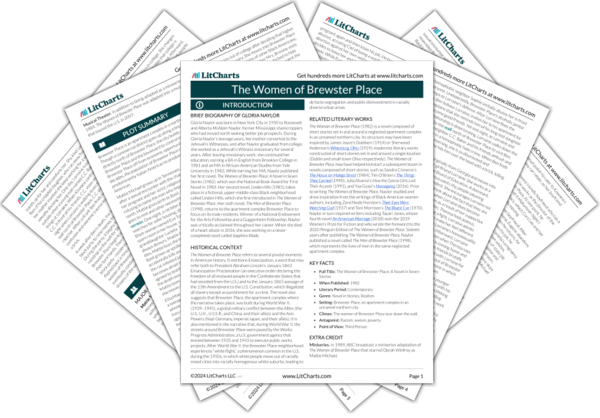When Mrs. Browne says Kiswana is “trying to be what she’s not,” context suggests she means that Kiswana is pretending to be working-class or poor when she comes from an upper-middle-class background. Kiswana associates poverty with Blackness due to the economic oppression of Black people in the U.S.; as a result, when Mrs. Browne questions Kiswana’s voluntary poverty, Kiswana takes it as a criticism of her Blackness and claims that Mrs. Browne is ashamed of their family being Black. Mrs. Browne’s lengthy response makes clear that she is not ashamed of her race. She simply doesn’t associate being African-American either with poverty or with repudiating names like “Melanie.” Moreover, she claims that her motherly love for Kiswana has helped Kiswana become the kind of proud adult she now is.
